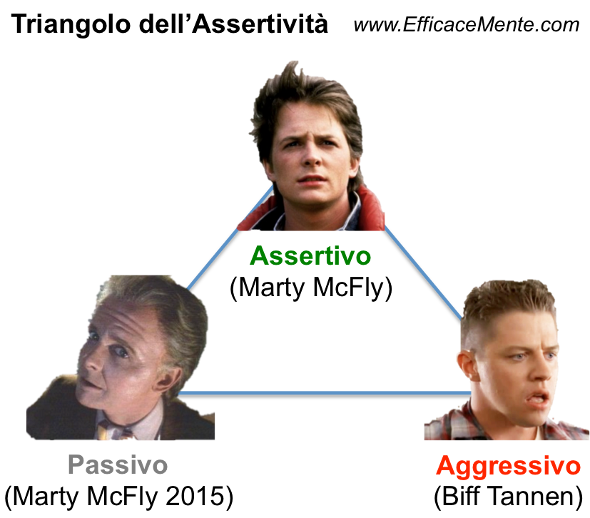How to increase self-esteem: a practical and effective guide to improve self-esteem without suffering.
This article is quite long and offers a solution in small steps, if you don't have the time to read it all, please bookmark this page and read it little by little.

We see the wickedness of others because we know it through our behavior. We never forgive those who hurt us because we think we will never get their forgiveness. We tell others painful truths because we want to hide them from ourselves. We show our strength, so that no one can grasp our fragility. Therefore, whenever you find yourself judging a brother, be aware that it is you who are on trial.
Okakura Kakuzo
In a self-respecting personal growth site, a very in-depth dedicated article cannot be missing self-esteem.
I have already written several posts about it, but this time I will explore the topic more: for this reason I have created a real step by step guide to increase your self-esteem.
Let's not tell lies, we can't improve self-esteem suddenly reading an article or following the latest transformative quantum technique; self-confidence must be built one step at a time.
In this article we will follow this path: a clear and direct path aimed at increasing one's awareness of self-confidence.
Before starting you can take a look at the first basic article dedicated to self-esteem that I wrote on Personal Growth Lovers that you can find by clicking here and to this other one on self-esteem.
Beds? Then let's get started.
Low self-esteem? Here's how to figure it out
The first step to take is to understand if you suffer from low self-esteem.
If you have ended up in this article you feel that you have low self-esteem, so you have already made your diagnosis.
However, you can confirm that you suffer from low self-esteem if you often tell yourself:
- I'm not up to it
- Others don't consider me
- It was all my fault this time too
- I'm too ... "bad thing"
- I am a goat
- I'll never, ever make it
Other signs of low self-esteem can manifest in our relationships, particularly if you have these feelings in the company of other people:
- Feeling of general inferiority
- Feeling that others know more and more about you
- Feeling of always being called into question for negative things
- Feeling of being inadequate
- Feeling of not being witty, talkative or nice
If you find yourself thinking the above phrases often or try these often annoying sensations, then you probably suffer from low self-esteem.
The good news is that improving your self-esteem is possible and consequently it is possible to detoxify from these unpleasant sensations.
The path to follow could be long and tortuous and requires some consistency, but once you have a satisfactory level of self-esteem the feeling you get is truly incredible.
If you want to continue with a real guided step-by-step path, download my path to increase self-esteem.
The importance of having self-esteem

For people who do not esteem themselves, success is worth zero, failure is worth double.
Giorgio NardoneSelf-esteem determines our potential and our ambitions.
If you have low self-esteem you will not aim very high because you will not have confidence in your abilities, while if you have good self-esteem you will increase your potential dramatically.
Furthermore, suffering from low self-esteem you will always find yourself unable to seize important opportunities that will happen to you and you will not even be able to create opportunities for yourself and for the people around you.
Generally, those who do not have self-esteem adequate to their possibilities suffer from:
- Chronic indecision
- He doesn't appreciate his own talents
- It magnifies the abilities of others
- He tends to avoid opportunities
- He is very anxious and passive
- He hardly takes the initiative
- He feels his opinions being ignored when he is able to express them
- He has a poor self-evaluation
- He often thinks he is ignorant
- Believes that he is a poorly interesting person
- He feels like he can't control his life
- When he receives a compliment he thinks it is exaggerated or false
- Has difficulty relating to people, especially of the opposite sex
- The fear of making a mistake holds him back
On the other hand, people who have good self-esteem or in any case proportionate to their abilities:
- They manage stress and anxiety better
- They freely and calmly express their opinion
- They know they can do well and that they have a lot of room for improvement
- They are not afraid to relate to others
- They are stimulated to learn new skills
- They feel good about themselves
- They know their weaknesses without making a drama out of them
- They are not afraid of challenges and on the contrary, sometimes they look for them
- They follow their philosophy of life, not caring about other people's thoughts
- They willingly collaborate with other people
- They are committed to achieving what they want
- They are responsible for their actions
- They leverage their strengths by enhancing them
- They defend their opinion but are willing to change it
- They know they are not perfect but they are fine with themselves
As you can see, living with a level of ideal self-esteem or living with self-esteem under your shoes makes a big difference and if you belong to those who feel low self-esteem within them you know very well what I'm talking about.
These prospects of improving your quality of life overall by reaching a better level of self-esteem should be enough to get you to turn your life around, perhaps not only in regards to self-confidence.
A parable that changes everything
Before continuing with the article, I propose one short story which helps us better define self-esteem and the value we give to ourselves and to the people around us.
"One day, a young man went to see a wise man and said to him:" Please help me: everyone tells me that I am a failure and a fool and it torments me that they are right. "
The sage looked at him and hastily replied: "Sorry, but I'm in a hurry, I can't help you: I have an important matter to deal with."
Then he paused and added, thoughtfully, "But if you want to help me, I'll return the favor."
"Of course, master!", The young man accepted, although he regretted that once again, and moreover by the wise old man, what concerned him was dismissed as something unimportant.
"Well," agreed the sage and slipped a small ring with a beautiful gem off his finger.
“Take my horse and go downtown to sell it: I need it urgently to pay all my debts, so make sure you get a good price.
If it's less than a gold coin don't accept. Go and come back as soon as possible! "
The young man did so, and when he arrived at the market square he showed it to several merchants, who all showed a lot of interest at first.
As soon as they heard that he was selling it only in exchange for gold, however, they immediately disinterested: indeed, some laughed in his face, others, even went away out of the blue.
A merchant told him openly that a gold coin was too much for such a ring, and he would be lucky to get one of copper or at most silver.
Hearing these words, the young man was deeply embittered and, defeated, he climbed back into the saddle to return to the sage.
“Master, I am dismayed, but I have not succeeded: I would have done it for a couple of silver coins, but I did not sell it because you told me not to do it for less than a gold piece! But they told me this ring isn't worth that much. "
"Indeed you raise a very interesting question, my boy," replied the sage.
“In fact, it would be a really good idea to figure out what it's worth before selling it! And who can make a more accurate estimate than a jeweler?
Get back on horseback and go to the jewelry store to find out how much it's worth. But don't sell it to the jeweler! Ask him as an expert how much he is worth and then come back to me immediately ”.
The young man got back on his horse and joined the jeweler, who examined the ring for a long time under the magnifying glass and weighed it carefully.
Finally, he replied to the young man: "Tell your teacher that right now I can't give him more than 58 gold, but if he gives me some time to provide, I'll buy it for 70 gold."
“70 gold coins?”, The young man asked amazed, and ran to the wise man at maximum speed.
When the sage heard what the young man told him, he remarked: “Remember, my boy: only a true expert can appreciate true value.
So why waste time wandering around the market asking and accepting any fool's opinion? "
Did you like the story? Did you understand the meaning? We do not leave anyone the opportunity to evaluate our worth.
I await your opinion in the comments, now let's see the 5 things you need to know about self-esteem.
5 things you need to know to have self-esteem

Wanting to be someone else is a waste of who you are.
Marilyn MonroeTo learn how to increase self-esteem little by little you need to know some theoretical concepts to learn to recognize it and become aware of its existence and how it works.
- Having good self-esteem is not an age factor. It doesn't matter if you are 20 or 80, self-esteem is independent of age. Age is also disconnected from the ability to improve self-confidence, in short, whatever your starting point, you can choose to improve self-confidence.
- Self-esteem is important for making decisions. The decisions you make in life, even the smallest ones, are influenced by your level of self-esteem: low self-confidence often translates into lower quality choices with a very low rate of challenge and growth. If you want to have a wider and more stimulating range of choice, it is important to achieve a good level of self-esteem.
- The level of self-esteem that a person displays affects everything they think, say and do. Understanding by eye if a person suffers from low self-esteem is not easy, however people with an ideal level of self-esteem are generally more active, disciplined and with a great desire to build. Try to look around, those who do not suffer from low self-esteem manage to achieve better results and have no difficulty in relating.
- It doesn't matter where you start from. It doesn't matter if you start from a low, medium or near perfect level of self-esteem, self-confidence can be improved and increased regardless of your starting level, in short, no excuses.
- Successful people are successful first of all because they consider themselves capable of reaching a higher level. By considering yourself capable of doing and creating, you will enter a virtuous circle where every goal you can conceive and imagine can turn into a real and achievable goal. The more you think you are capable of reaching an ambitious goal, the more energy you will release to achieve it.
Including these five focal points, let's see a path of 5 practical tips to learn how to increase self-esteem.
How to increase self-esteem without messing up
# 1 Your looks: the truth that charlatans don't have the guts to tell you
All the self-esteem gurus tell you this, but they don't explain effectively how physical appearance affects self-confidence.
Whether we like it or not our appearance affects self-esteem, the sooner you accept this fact the sooner you will be able to increase your self-esteem.
Let's clarify some things immediately:
- Appearance is one of the parameters when evaluating a person, not the only one
- Appearance affects your self-esteem because it affects how you think about yourself
- A well-groomed appearance sends positive signals to your brain
- Taking care of your physical appearance alone won't make you a self-esteem super hero
As I said, you do not have to focus everything on your appearance to increase your self-esteem otherwise there is the risk of becoming inflated balls without self-confidence.
However, it is necessary to consider the external appearance as a parameter that, together with the others, can help improve self-esteem.
It also seems obvious to me that putting on an evening dress to stay at home to watch television isn't necessary and the fact that you don't dress well when alone doesn't mean that self-esteem comes from other people.
It simply means that if necessary you can take care of yourself.
So the lesson to take home is that only the mass thinks that aesthetic self-esteem is the only important one, instead you accept that it exists but don't focus only on it.
So improve your appearance, not trying to achieve non-existent perfection, but a better version of yourself on the outside as well.
Aesthetic self-esteem depends onexperience we have of ourselves, for this reason there are insecure models or not very likeable people who are extremely self-confident.
To tell you mine, I find people who think superficial:
- That the outward appearance is the only thing that matters and they focus only on that
- That the inner aspect is the only thing that matters and they mock those who sweat to have a beautiful physique
There's no need to go around it, both aspects matter, so it's a good thing to try to cultivate both of them.
But then why do charlatans insist on promoting the fact that the outward appearance doesn't matter at all while the inward is everything?
Because it serves to give a quick and painless sop to those who do not want to take care of their appearance and as human beings we tend to be lazy, consequently this strategy easily takes root on the mass.
# 2 How to raise self-esteem with the anchoring technique

Recent studies have shown that our brain cannot exactly define the difference between a 'truly lived experience it's a'imagined experience and displayed with great intensity.
In our body the are unleashed same chemical reactions whether we are thinking of something amazing we have done or if we just imagine it vividly.
To exploit this sort of bug we can use the anchoring technique.
The anchoring technique is also used by successful sportsmen and entrepreneurs, here's how to proceed.
- Sit back, visualize and feel a moment in your life when you felt full of energy, when you were at the top of your performance and enthusiasm. Try to relive this moment by recalling all the positive feelings you have experienced.
- Hold this good feeling for a few seconds and fix it in a gesture such as closing a hand into a fist and standing up at the same time.
- Repeat for at least 5 times to make your brain anchor the pleasant sensations to the movement you have chosen.
Anytime you want release new energies sit down and stand up closing your fist.
This technique works very well if you connect a very strong experience and if you repeat it very often, ideally every day.
It is also a great way to unlock extra energy in the short term to give you a rush of positivity when you need it, but keep in mind that in the long run there are better precautions, like the first point we have already seen and the next ones you will read.
Anchoring is a real NLP technique, a discipline that I don't love, but as always, you can try it and if it doesn't work with you, discard it mercilessly.
# 3 Play on your skills and take action

One of the more effective systems to improve self-esteem is to work on your skills, in doing so the confidence in yourself will start from the inside and not from the outside.
As we have seen, one of the unpleasant feelings one has when suffering from low self-esteem is think you don't have relevant things to say and consequently perceive one's words as not very useful, stimulating and pleasant in the eyes of others.
To remedy this type of problem you have two solutions:
- Valuing your specific experiences and skills
- Expand your range of skills if you are not particularly competent
If you already have relevant skills or experiences in your life, the only thing you need to do is learn from your past and value what you have learned.
For example, I know people who have made several trips but on balance they have absorbed nothing useful from what they have experienced.
In this case it is about increasing your awareness, because if you understand that what you do has value, you increase your self-esteem.
Warning: enhancing your experiences does not mean bragging or constantly bringing them up.
If, on the other hand, you think and perceive that you have nothing interesting to say, that you do not know any subject thoroughly, gain experiences, acquire new skills, increase your level of competence.
Try asking yourself: what is the training that could lead me to reach the level I want?
If you think about it, there are a lot of successful people who don't have great intelligence, personality or charisma.
However, what really sets them apart is their particular ability, they can do damn well one thing that they can most of the time.
Maybe they too have flaws, paranoia and difficulties, but they value their skills and leverage those.
By becoming truly proficient in a certain field, not only can you benefit from the inherent benefits it brings, but you will send out strong and positive signals to your mind.
To be more sure of yourself without playing a part you really have to have skills and competences, acting out a script will inevitably lead you astray.
# 4 Know your 3 basic rights

When we suffer from low self-esteem we often forget about ours fundamental rights, rights that exist regardless of our beliefs and the judgment of others.
We all have:
- The right to exist
- The right to be happy
- The right to be wrong
These 3 rights may seem obvious, however they are sometimes unconsciously forgotten to leave room for a long series of duties, often non-existent, to which we must fulfill.
Knowing your 3 rights is a conscious step to regain self-confidence: you must constantly consider yourself authorized to act and above all to make mistakes.
Making mistakes is not only your right but often it is also useful.
When deciding something important, always listen to your opinion, anticipate mistakes and accept them.
Thinking that you can make perfect decisions and act perfectly on every occasion is afalse and disempowering expectation.
In this regard, read the article dedicated to limiting beliefs very carefully (you can find it by clicking here) to start dismantling the prejudicial ideas that block you.
To make your 3 rights retroactively valid try this exercise to boost your self-esteem: take a pen and paper and write down the events in which you have not felt good about yourself and in which you think that your self-confidence has taken a hard hit.
Now write down next to each occasion that you consider negative your fundamental right that you did not consider at the time, for example:
- Marco told me that I am a bad person and that I will never be happy.
- At that party I made a fool of myself in front of everyone, I'm sick just thinking about it.
A possible application of your rights could be:
- Marco is not a supreme entity, I have all the right to be happy and from now on I will do everything in my power to make it happen.
- I have the sacrosanct right to make mistakes, nobody's perfect. Maybe I was a little unlucky to have slipped into a place full of people, that's all.
Do this exercise in writing, it is very important transfer to card your feelings and emotions to overcome any blows from the past that may affect your self-esteem in the present moment.
To act on your present that will inevitably affect the future, you must always keep your rights in mind whenever you make decisions or take relevant actions.
You also give less importance to your little voice in the brain that tells you:
- I can not do it
- I don't deserve it
- I will never succeed
- Can't go wrong
Remember that self-esteem must start from within but it is very useful to select who has the right to judge and advise you.
Leave this to the best people you know and don't leave this power to negative individuals or worse still to the mass: always remember the parable of the ring.
# 5 The healthy selfishness that boosts self-esteem

Have you ever noticed that on the plane before take-off the employees start that boring talk about the emergency exits and how to insert the oxygen mask?
Maybe you've never noticed a small detail.
Flight attendants clearly say that first help others you must wear the mask first and possibly only after assisting a person who is in difficulty.
When it comes to self-esteem, it is similar: helping others is undoubtedly a noble thought, but before you think about your neighbor, make sure you have achieved the best for yourself.
To be affected, so to speak, of a healthy and supportive selfishness offers several benefits, including:
- We can be stimulated to achieve greater autonomy in all areas of life
- We grow more sincere and rewarding relationships
- We mature more as people
- We develop our skills and abilities to become unique and special
- We become more authentic and sincere with ourselves and with others
- We develop the will to invest in ourselves thanks to self-love
But why can developing your own healthy selfishness increase self-esteem so much?
Think first of yourself and your well-being it releases us from actions devoted to gaining the goodwill of others.
By doing so, we no longer make decisions for others but for ourselves and for our well-being.
So here's how to grow some healthy selfishness related to self-esteem:
- Learn to say no and to distinguish who is sincerely asking you for a favor from who is demanding and demanding your time
- Focus on the here and now without focusing too much on scruples and any regrets
- Remember that you have no obligations to everything and everyone
- Raise your awareness to make sensible decisions independent of others
Once you are able to develop your ideal level of selfishness you will see your self-confidence increase without having to think about it again.
Questions and answers on self-esteem
#1 What is the etymology of the word self-esteem?
The word self-esteem derives from Self and Esteem and indicates the subjective process that induces a subject to appreciate himself.
#2 Why is it important to have good self-esteem?
Self-esteem as we have seen directly determines what we consider ourselves capable of doing, if we do not consider ourselves capable of carrying out a certain action, we will not even try to carry it out when it could fully fall within our possibilities.
#3 If I increase my self-esteem, will I become a big balloon?
It is a common opinion that self-confidence leads people to become inflated balloons: nothing could be more wrong. The so-called inflated balloons have too much self-esteem, nothing to do with a level of self-confidence compatible with the person we are.
#4 How can I increase my self-esteem?
In the article I have exposed some exercises to increase self-esteem, I advise you to begin to assimilate well the points we have seen and try to put them into practice.
#5 Can self-esteem increase or decrease over time?
The security we have in ourselves can change according to the negative or positive events that happen to us, however if you suffer from low systematic self-esteem it is good to try to remedy it.
#6 Does having too much self-esteem hurt?
Having too much self-confidence means not having inner balance but suffering from an excess that is generally better to balance.
How to increase self-esteem: practical advice
- Know what self-esteem is and how it works
- Synchronize exogenous self-esteem with endogenous self-esteem
- Act on your skills and experiences
- Set yourself sensible and achievable goals
- Be aware of your fundamental rights and absorb them
- Remember your successes and learn correctly from mistakes
- Decide who are the people who have the right to judge you
- Re-evaluate and scale your inner voice
- Make comparisons with judgment and objectivity
- Get out of your comfort zone
- Increase your healthy selfishness
- Find the sport that suits you (preferably as a team)
- Don't be afraid of becoming a balloon
- Get it wrong quickly
- Forget the perfect ideals that don't exist
- You care about your outward appearance as much as you care about the inward one
- Improve your skills
How to increase self-esteem
When you are able to applaud yourself, it is much easier to applaud others.
Denis WaitleyThe guide ends here, as you may have noticed I have not proposed a transformative quantum technique for improve self-esteem, but a path made up of strategies that must be applied and tested in person.
Boosting self-confidence is not a quick and painless process, but a path that requires time and commitment, you will have to get out of your comfort zone and expose yourself little by little.
Self-esteem is a very delicate matter but of fundamental importance in order to be able to act freely and develop our latent potential, it is really worth investing some time at least to do the own point of the situation.


























